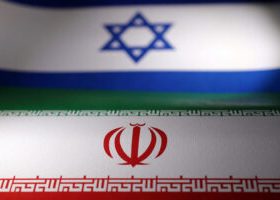PERINTHALMANNA/KATHMANDU, India/Nepal — A li Aksar is rooting for Argentina to win the upcoming football World Cup in Qatar — a tournament he will be watching on a big community screen set up near his home in southern India.
After a stint driving hundreds of workers back and forth from stadium construction sites in Qatar’s capital Doha, Mr. Aksar returned home empty handed.
No souvenirs, no gifts, and most crucially — no savings.
His dream of better wages, regulated work hours and decent labor laws came to naught, despite leaving home for 18 months to help turn Qatar’s arid landscape into a venue fit for 64 televised games and some 1.2 million visitors.
“I did not get anything extra or earn more because (the) World Cup is going to happen,” the 33-year-old said from a football ground near his home in Perinthalmanna in Kerala.
“Recently, we had to pledge (for a loan) some family gold because expenses shot up. What I earned in Qatar was just enough for daily expenses of my family back home. I have no savings even though I often did overtime to earn more.”
Qatar, too, has seen some of its dreams dashed as it had hoped the World Cup, which starts on Sunday, would showcase Doha as a model place to do business rather than be a magnet for bad press over unpaid wages, sweltering conditions, and contract breaches.
Labor rights campaigners say Qatar has failed workers by falling short on the reform commitments it made in order to become the first Arab country to host the tournament.
Qatar has rejected demands for a $440 million fund to compensate workers for labor rights abuses, including injuries and deaths, pointing to its own raft of reforms, such as higher minimum wages and an end to exit permits.
The International Labor Organization has said reforms enacted in Qatar have improved the lives of hundreds of thousands of workers and are “significant for the region.”
Isobel Archer, Gulf program manager with the non-profit Business & Human Rights Resource Center, said that “migrant workers are the real beating heart of the tournament.” “However, our research demonstrates that labor reforms in Qatar have not been adequately or consistently implemented, with little improvement on the ground,” she said in a statement.
Between 2016 and November 2022, her organization recorded 346 cases of abuse impacting Indian or Nepalese workers, with complaints often linked to a group of workers.
About 85% or Qatar’s 3 million population are foreign workers, mainly from Nepal, India, Bangladesh, Sri Lanka, Kenya, and the Philippines.
In an email to the Thomson Reuters Foundation, a Qatari government official said that “Qatar has always acknowledged that work remains to be done, notably to hold unscrupulous employers to account.”
“The reality is that we have always committed to a zero-tolerance policy to enforce our laws, and that we are already seeing the number of offences declining year-on-year as compliance increases among employers.”
‘SHUTDOWN JOBS’
Mr. Aksar’s neighborhood — typical of the region — is football mad.
A model of the World Cup trophy, which 32 teams will vie for, has been erected outside a local restaurant; posters of the players are up and sales of football jersey are rising.
Fans of footballer Lionel Messi even installed a giant cut-out of their Argentine hero in the middle of a river in Kerala, pointing to the mounting excitement ahead of kickoff.
As local football clubs draw up plans for special community screenings of the matches, there is also a buzz about World Cup “shutdown” jobs advertised by placement agencies for stewards, hawkers, cleaners and waiters during the tournament.
The “shutdown” jobs will last three months, offer free visa and passport services and a higher remuneration package.
But campaigners say some might not be legitimate, pointing to pending labor complaints.
“There was a request for 300 drivers for the World Cup that I received from a friend in Doha,” said one recruiting agent who did not wish to be identified.
“There was no proper contract that would be given to the workers, no benefits or insurance and they would have to return after three months. In some cases the pay is higher but it is risky for workers in case of a mishap. I said ‘no.’”
But such jobs are a big pull, especially after the pandemic forced thousands of migrants to return home, often unpaid.
WhatsApp and Facebook groups are flooded with workers desperate to see if the new job offers are legitimate.
Electrical engineer Hassan Shaik, 39, who helped build new metro lines to the stadiums, is on one such Facebook group.
“If one goes on a proper visa with a good company, the salaries are good,” he said from his parents’ home in Kerala.
“There is a lot of buzz around the World Cup, which is why people have to be more careful while looking for jobs.”
GULF MONEY
In Mallapuram — a district in the Indian state of Kerala — the legacy of mass Gulf migration is omnipresent, with food stalls selling Middle East stalwarts from mandi to shawarma.
Locally the area is called “mini Gulf” and every family has at least one relative away working in the Gulf, most in construction or hospitality.
This migration route has brought in remittances that have sustained the local economy, helping families build lavish homes, finance weddings, or buy better education and healthcare.
Haseebudheen K, 28, belongs to one such family.
In July, he exchanged rings with his new wife and celebrated the marriage with a party for family and friends.
The wedding cost him roughly 400,000 rupees ($5,008) — half earned setting up exhibition counters ahead of the World Cup and the rest was borrowed.
Following in the footsteps of his father, who worked as a tailor in Saudi Arabia for 27 years, Haseebudheen spent more than two years in Doha, watching the city transform pre-World Cup.
“I only heard that it has become better for workers now, with salaries being directly transferred to accounts and online complaint mechanisms being available,” Haseebudheen said.
“I saved 10,000 rupees for two years and used it for my wedding. I still have a loan to pay and will return to Doha, maybe in time to see a few football matches.”
LACK OF OPTIONS
Football fever is running high in Nepal, too.
Bishwo Sunar grew up in Nepal admiring the silky skills of Brazilian legend Ronaldo; now he is 33 and wants France to lift the trophy this year.
Much as he would have liked to watch a match live in one of the stadiums where he worked as an air-conditioning technician, Mr. Sunar’s family wanted him back home — and fast.
“My family was worried because it had been a long time (I’d been away). My employer was also not good. So, I prioritized family over the World Cup and returned home,” he said.
Mr. Sunar’s memories of working in Qatar are of high heat, long shifts and delayed wages — an experience echoed by Santosh Kumar Yadav, who was hired to set up the wiring for three stadiums.
“The job was not that hard, but it would be difficult during the hot summer days,” said the 29-year-old Nepali, who is back home with his wife and newborn baby.
“Although I worked indoors, the new buildings had no air conditioning. I also worked in the underground floors of the stadiums where there was limited access to fresh air … I have heard of people collapsing due to the heat.”
Mr. Sunar used his monthly income of 1,400 riyals ($373) to start a poultry farm with 300 chickens, though he wishes he could have built a house.
“Building a new home is still a dream for me,” he said. “It was my bad luck that I couldn’t even make a decent house working for eight years in the extreme heat in Qatar.”
Yet the lure of big money remains high in the region.
Mr. Aksar’s local elected representative in Perinthalmanna has long worried about the pull of the Gulf on young Keralites, despite the continued stories of abuse.
“Many finish school and queue up for a Gulf job, hoping to earn big bucks,” said Najeeb Kanthapuram, an ardent fan of the Brazilian team.
“It is a vicious cycle we are trying very hard to break with better education facilities and work options… but for now, Qatar is where all the action is.” — Thomson Reuters Foundation







